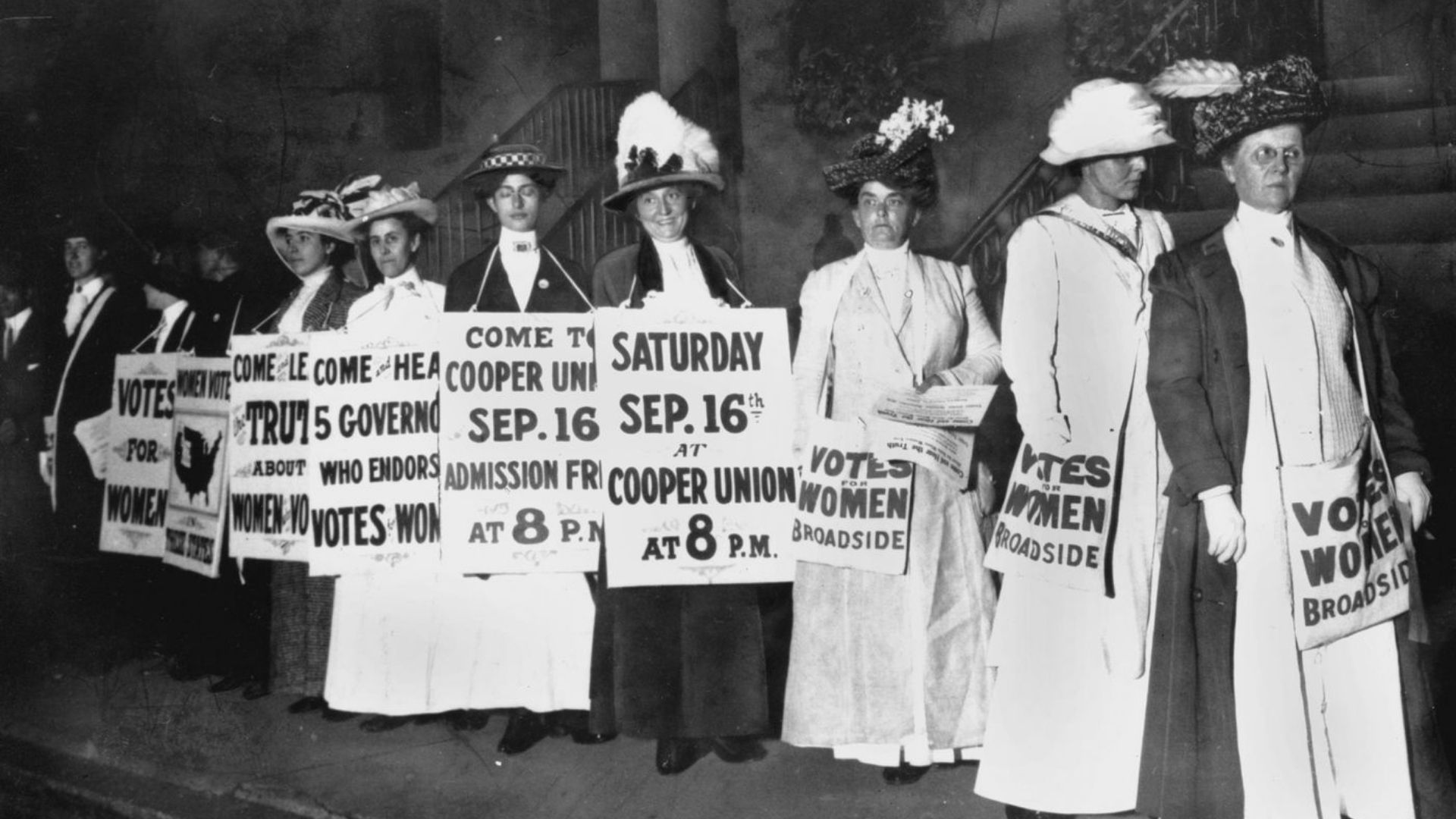Practice
Flashcards
Learn
Match
Spell
Test
Practice Worksheet
PDF Download Link
Transcript
The 19th Amendment
“The right of the citizens of the United States to vote shall not be denied or abridged by the United States or any State on account of sex.” This hardly sounds like a radical idea. Could any reasonable person dispute the fairness of such a statement? It may be unthinkable now, but less than a hundred years ago, this proposition was the subject of heated discussion.
Even in the 19th century, women had few rights. Men ran their families and the government. Only men could buy and sell property. If they went to school at all, women were given only a basic education. The marriage vows required a woman to “love, honor, and obey” her husband, and the right to vote was limited to men.
Change was painfully slow, but it finally came. The unwavering dedication of women like Elizabeth Stanton, Lucretia Mott, and Susan B. Anthony helped to motivate all women to seek justice. At an 1848 meeting held in Seneca Falls, New York, 68 women and 32 men signed a statement demanding women be given equality with men. Still, getting the right to vote proved a daunting task. When they were allowed to speak in public, women were frequently exposed to derisive shouts from the audience. Newspapers and some churches reprimanded them for seeking to change the “natural order of things.” Even women slammed doors in the faces of those circulating petitions. Then the Civil War broke out, and the movement slowed to a near halt.
A surprising event occurred after the war. The Wyoming Territory, where men outnumbered women by almost ten to one, granted women the right to vote. Some believe it was a stratagem to attract more women to the area, but whatever the reason, by 1896 three western states had followed Wyoming’s example. By 1917 sixteen states had granted women the right to vote, but things seemed to stop there. A constitutional amendment was the only way to guarantee all women the right to vote.
Such an amendment had been proposed for some 40 years, but it had never passed. In spite of an overwhelming number of petitions, it was defeated again in 1914. After President Wilson gave his support, the amendment was finally passed and sent to the states for approval in 1919. With Tennessee’s approval in 1920 the 19th Amendment became the law of the land.
radical
radical changes and differences are very important and great in degree.
revolutionary, reforming, extreme, militant
radical people believe that there should be great changes in society and try to bring about these changes.
dispute
If you dispute a fact, statement, or theory, you say that it is incorrect or untrue.
contest, question, challenge, deny
A dispute is an argument or disagreement between people or groups.
proposition
A proposition is a statement or an idea which people can consider or discuss to decide whether it is true.
A proposition is an offer or a suggestion that someone makes to you, usually concerning some work or business that you might be able to do together.
In the United States, a proposition is a question or statement about an issue of public policy which appears on a voting paper so that people can vote for or against it.
unwavering
If you describe a feeling or attitude as unwavering, you mean that it is strong and firm and does not weaken.
steady, consistent, staunch, determined
not wavering or hesitant; resolute
motivate
If you are motivated by something, especially an emotion, it causes you to behave in a particular way.
inspire, drive, stimulate, provoke
If someone motivates you to do something, they make you feel determined to do it.
daunting
Something that is daunting makes you feel slightly afraid or worried about dealing with it.
intimidating, alarming, frightening, discouraging
causing fear or discouragement; intimidating
derisive
A derisive noise, expression, or remark expresses contempt.
mocking, ridiculing, jeering, taunting
showing or characterized by derision; mocking; scornful
reprimand
If someone is reprimanded, they are spoken to angrily or seriously for doing something wrong, usually by a person in authority.
blame, censure, rebuke, reproach
to admonish or rebuke, esp. formally; reprove
circulate
If a piece of writing circulates or is circulated, copies of it are passed round among a group of people.
When something circulates, it moves easily and freely within a closed place or system.
If something such as a rumor circulates or is circulated, the people in a place tell it to each other.
stratagem
A stratagem is a plan that is intended to achieve a particular effect, often by deceiving people.
trick, scheme, maneuver, plan
a plan or trick, esp. one to deceive an enemy












0 Comments